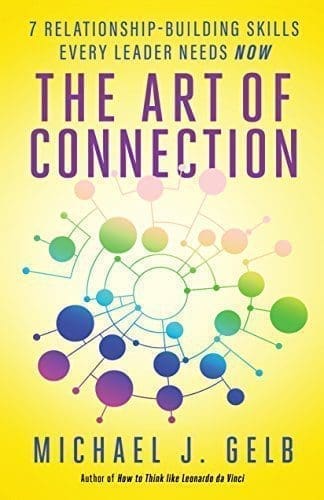Let’s Work Together!
Relationship building skills are essential in business, helping create the foundation of care, trust and connection you need to grow. They enable you to get the best from teams and collaborators, and work towards your goals. Inevitably differences of opinion will arise between leaders, managers, colleagues and external partners.
But, relationship building skills will help you stop conflicts from escalating, and refocus. When problems do arise, these tools will see you through a crisis. And afterwards, they’ll help you take responsibility, admit things have gone wrong, and connect and rebuild.
This article considers why relationship building skills matter and the difference hybrid working is making to how businesses function. US educational body CASEL advocates children learning relationship skills alongside academic subjects. Relationship building skills are something businesses need to incorporate into staff development programmes, at all levels. To benefit fully, work on practising and improving these soft skills and make them part of your workaday thinking.
Why are Work Relationships so Important?
Good working relationships with colleagues and external partners make your job more productive and more successful. And it’s more enjoyable and fulfilling, too. The professional connections you form will also help you further your career.
For businesses to grow, it’s essential to build internal and external relationships. And close-knit teams are more productive, enabling them to innovate, keep good people and support their personal development.
So What is Relationship Building?

Relationship building is the process of developing social connections. It’s as simple as that. In business, this fundamental skill set is the basis for building reputations, influencing, closing deals and sustaining commercial relationships. And it’s also what you need to create a business culture that brings out the best in everyone.
Healthy relationships, in business or otherwise, have five essential ingredients: communication, mutual respect, trust, acceptance and shared values. People build strong relationships in business by communicating openly and honestly. They establish at the outset what they want from the relationship, and feel comfortable talking about their goals. Doing this increases trust and strengthens the bond between both sides.
Hybrid Working Means we Need Relationship Building Skills Even More
As businesses of all sizes embrace hybrid working, relationship building skills are more important than ever. Working from home started as a short term reaction to COVID. Now, as offices reopen, for many businesses hybrid working is transforming their workplace cultures. Some companies are going further, turning their head offices into campuses. Hybrid working is clearly harder to implement in operations like production and distribution operations, though it’s a great company-wide ambition.
In any workplace culture, leaders and managers still have to make their teams deliver results. But mutual flexibility and confidence are preferable to rigid management and suspicion. And colleagues like to feel supported and trusted to achieve. And that means relationship building.
Sticky Learning ® is 7 times more effective than 1-day training courses. Plus, you will get a Chain of Evidence proving your Return on Investment. Discover soft skills training that changes behaviours long term.

Rethinking Your Office Set Up? Maybe You Should Get Your People to Rethink This Stuff, too
Staying with hybrid working, many business leaders and HR people talk about transitioning from what they were before, into sector-specific flexible business models. Engaging everyone fully in this process involves businesses and their people in committing to continuous learning and development. In the process, they need to think about supporting colleagues in developing their relationship building skills.
You may not want to transition your business beyond a certain point, right now. That’s fine. But it’s certainly a worthwhile aspiration, along with sustainability, engagement and the other trending business virtues people talk about. When you do make changes, it will be stressful for people.
Working on relationship building skills will help promote managers’ and colleagues’ wellbeing and foster good mental health. Just talking to each other and being open will help turn things around.
Maybe We Need to go Back to School and Relearn This Stuff
Whether you decide to morph into a different business or not, the next few years are going to be challenging for everyone. That much we know. Developing relationship building skills will equip business teams to be resilient and grow. People go to colleges and universities to get the qualifications needed for their careers. But it’s not all you need to learn, to do well. Intellectual development and social-emotional development are intertwined, and working on both is the best way to promote lifelong success.

CASEL, the Collaborative for Academic, Social and Emotional Learning has compiled a list of core competencies they encourage students to learn:
- Self-awareness: being able to identify and assess your thoughts, feelings and values, and how they intersect with your behaviours.
- Self-management: ability to identify and regulate emotions, thoughts and actions.
- Responsible decision-making: being able to make choices about your behaviour.
- Social awareness: the ability to take the perspective of others and empathise with them, as well as learning appropriate social and ethical behaviour.
- As you’d expect reading this article, the fifth item on CASEL’s list is relationship skills.
Let’s Look at the Relationship Building Skills Everyone Needs to Practise
There are three core skills you need to build relationships in business:
Skill #1: Empathy
Being able to see through someone else’s eyes and appreciate their viewpoint and experience, so you understand how they feel. Crucially, you also need to be able to share your insights accurately, so others benefit from your efforts to understand them. This brings us to
Skill #2: Validation
Also known as emotional validation, this is when you tell someone you understand why they feel like they do. When people convey their understanding and do so accurately by using empathy, the relief we feel can be huge. We reach a sense of release in our bodies, as well as our minds. Showing validation, say in mid-argument, might feel risky, but can calm things, allowing warmer feelings to return.
Skill #3: Consideration and Civility
Small gestures of consideration can have a massive impact on the tone and dynamics of a relationship. Showing personal interest, a kind word or a sympathetic tone can reset a negative dynamic and put things back on track. If you also practise empathy and validation, people are likely to begin to respond in kind.
You’re Not Wimping Out or Being Weak by Validating Someone!
Listening to the other person and validating them changes the emotional atmosphere completely. But you don’t have to agree with someone one hundred percent to validate them. Validation doesn’t mean betraying your values, surrendering, caving in or being a people pleaser. However, you do need to be true to yourself and authentic, asserting yourself without being aggressive about it. That goes for whether you’re a leader, a manager or a colleague.
Here’s What to do: Relationship Building by Numbers

As you’d expect, people have written a great deal about relationship building skills. What is clear is that there are three fundamental elements.
3 Important Things in a Working Relationship
- Connection: For best results, colleagues and business partners need to feel connected, working toward a shared goal. This level of understanding encourages trust and openness, and nurtures acceptance and shared values. That’s why feedback is especially important in businesses with a hybrid working culture and in supplier/customer and client/agency relationships. Connection takes time to develop, and not everyone realises its importance. But you can build it through feedback, involving openness and appreciation.
- Commitment: The same as with personal relationships, commitment means making a mindful and consistent decision to invest in a working relationship. In business, both sides need to work towards its growth. Some people don’t need reminding about the need to do this, or how to go about it. But we can all do better.
- Communication: Even if you’ve made a connection and you’re committed to your plan, everyday business pressures can lead to communication problems.
How you can put these elements into practice is also well understood. Here are some things to work on:
5 Ways to Build Strong Relationships
- Have open and honest communications: Good relationships depend on good communication. That’s true whether it’s face to face, on Zoom, by phone or email.
- Develop your people skills: Work on your ability to relate to others.
- Respect and appreciate others.
- Be supportive: Accept support when it’s offered, and offer support to others.
- Have a positive attitude.
In business, success isn’t purely about getting the job done. You’re working with people, who are human beings with emotions, just like you. You’ll do so much better if you get on.
This next list of tips goes further in addressing the all-important personal side:
7 Habits for Building Better Relationships
- Become a great listener.
- Ask the right questions.
- Pay attention to the whole person.
- Remember things that are important to others.
- Be consistent, and manage your emotions.
- Work on being open and sharing when the time is right.
- Be genuine, confident, humble, trustworthy, positive and, if possible, fun.
4 Ways to Communicate Better With Customers and Clients

Good communication between leaders, managers and colleagues in a business is important. But it’s even more so when you’re working with people in other organisations, especially if they hold the purse strings. It’s an unchanging fact of business life that the person who’s paying has the power in the relationship. These tips can make a world of difference in building relationships with clients and customers:
- Be empathetic: As you listen to your client or customer, don’t just humour them. Put yourself in their shoes and understand their issues and concerns.
- Make clear requests for decisions: Ask clients or customers to respond to requests for decisions regarding proposed action, based on clear explanations of the benefits. Don’t be demanding, or put them on the spot. Be polite, friendly and respectful. Take the lead in navigating external deadlines connected with the actions following the decision. If in the process you feel you can work together better, suggest viable options to benefit both sides.
- Prioritise listening over speaking: This goes back to the previous tip about empathy. Let the client or customer finish their point, and make an effort to actively process what they’re doing while they’re talking, avoid getting distracted, or thinking about your next point. Take your time.
- Everyone’s a winner: You may find yourself disagreeing with your client or customer about a contentious issue. And these days, there are plenty of those around. But that doesn’t mean you should talk over the other person, trump them, or try to have the last word! You could end up losing the business. Your relationship is more important than this immediate conversation. If the issue warrants, keep the present conversation calm and friendly and suggest exploring it objectively another time.
Relationship Building Matters in Customer Service, too
Communication, negotiation and networking are all essential skills in building and managing a business, which involves relationship building. Marketing, sales and customer service involve relationship building, too. If you don’t work on these relationships, you can lose customers.
As consumers, we’re all familiar with feeling frustrated in dealing with large companies. But when things go wrong, listening skills and empathy can retrieve the situation. When businesses change, they can take steps to prevent losing customers and reputation damage by building their customer service team. Or you could take on an existing team. When Shell Energy Retail took over the Post Office’s internet service, they kept the Post Office customer service team intact. And from anecdotal evidence, it saved the day.
And Finally: Where to Find Out More: What to Put on Your CV About Relationship Building Skills
We mentioned CASEL, the US-based Collaborative for Academic, Social and Emotional Learning and their list of core competencies for students. If you’re pondering how to help your team develop their relationship building and other soft skills, they’re worth checking out.
Or, try reading The Art of Connection: 7 Relationship Building Skills Every Leader Needs Now by Michael J. Gelb.

In Gelb’s Book, the Seven Skills are:
- Embrace humility as the source of genuine strength and confidence: it allows yourself to connect more effectively with yourself and others (vulnerability
- Be a glow worm: Emotions are contagious. Catch and spread the energy that brings out the best in yourself and others.
- Achieve the three liberations: Gelb has three ‘simple but profound’ ways to shift out of the unconscious patterns of thought that interfere with your ability to connect with yourself and others.
- Transcend fixations: Move beyond the habits of thought that limit your freedom to connect and respond, intelligently and effectively, to different types of people,
- Balance energy exchange: Gelb offers simple practical methods to monitor the balance of exchange in relationships and adjust it when necessary,
- Be a rare listener: Gelb says real listening is rare. Improve your listening skills.
- Turn friction into momentum: Find creative solutions t relationship challenges.
If you enjoyed Stephen R. Covey’s The 7 Habits of Highly Effective People, this book is in a similar style.
You might also like to check out our previous articles on soft skills which impact on relationship building:
- Affiliative Leadership.
- Conflict Resolution.
- Effective Persuasion.
- Goleman’s Leadership Styles.
- Listening Skills.
- Small Talk.
- Talking Skills.
What Should I Put on my CV About Relationship Building Skills?
Businesses increasingly look for candidates with strong relationship skills. You can list your relationship building and other interpersonal skills on your CV in a skills section. And you can highlight how you have used them, in the descriptions of your experience. It’s common practice to highlight entrants’ communication skills in business award applications. So you definitely shouldn’t be coy about flagging your relationship skills when you apply for a job!




